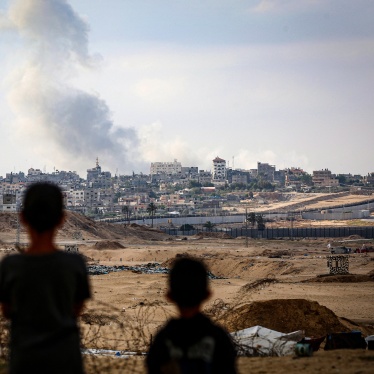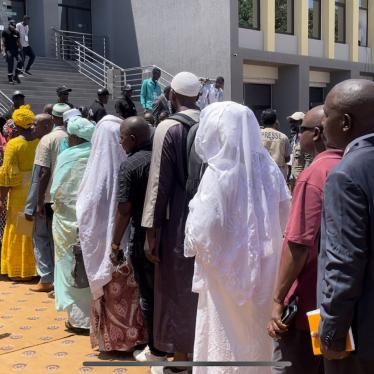Chairman Patrick J. Leahy
United States Senate
433 Russell Senate Office Building
Washington, DC 20510
Ranking Member Jeff Sessions
United States Senate
335 Russell Senate Office Building
Washington, DC 20510
Re: S. 3804, Combating Online Infringement and Counterfeits Act (COICA)
Dear Chairman Leahy and Ranking Member Sessions:
The undersigned advocates and human rights and press freedom organizations write to express our deep concern about S. 3804, the “Combating Online Infringement and Counterfeits Act” (COICA). While we sympathize with the underlying goals of S. 3804, we believe that key provisions in the bill will result in serious unintended consequences for freedom of expression and human rights on the Internet, undermining global Internet freedom abroad. We urge you to refrain from moving this legislation until these issues are fully examined and addressed.
In its essence, the bill would enshrine in US law a legal process that would force Internet service providers (ISPs) to block certain communications based on content, oblige registry operators to lock domains for the entire world, and create an extrajudicial blacklist of suspected content—setting a precedent that we believe would reverberate around the globe. Over forty countries now filter or block content on the Internet to some degree, and that number is growing. Even more problematic, filtering is no longer the sole province of pariah states; liberal democracies like Australia are also considering mandatory filtering regimes. Historically, the United States has been the bulwark against censorship and government-?imposed blocking of Internet content. If the United States sets the precedent that any country can order the blocking of a domain name of a foreign website or seize such a domain (thus taking down content for the world), it will forfeit the high ground in this global debate, and the effort to secure the rights of Internet users and citizen journalists around the world to speak and access legal content may be irreparably harmed.
The human rights community has strongly condemned countries that use the tactics proposed in COICA to take down content for a site’s global user base. In Turkey, for example, YouTube has been blocked for several years because it refuses to disable access to content illegal under local law for the site’s global user base. Advocates in Turkey have been working to rescind this order. Yet this bill would ratify global content blocking by allowing the Attorney General with a court order to direct a registry operator or registrar located in the US to disable access to a domain name for the global Internet. While the technical mechanisms for achieving this may vary, the effect is the same: COICA would stand for the proposition that countries have the right to insist on removal of content from the global Internet in service to the exigencies of domestic law. Nothing in principle would limit application of this approach solely to copyright infringement.
COICA could also lead many states, including liberal democracies, to adopt similar policies directed at US content, taking it down worldwide. Content that is fully protected under the First Amendment remains proscribable in other countries, such as hate speech in France and Germany, and local access to such speech remains a frustration for governments in those countries. And of course, COICA’s approach could be misused in countries where the rule of law is weak or entirely absent. As Microsoft’s recent experiences in Russia have revealed, governments can exploit copyright laws as a pretext for suppression of political speech in other parts of the world. Further, once the US sends the green light, the use of domain locking or ISP domain blocking to silence other kinds of content considered unlawful in a given country—from criticism of the monarchy in Thailand to any speech that “harms the interests of the nation” in China—could metastasize, impacting bloggers, citizen journalists, democracy movements, human rights advocates, and ordinary users all over the world. For countries already engaged in ISP blocking, US precedent would legitimize the actions of their governments, undermining the US government’s ability to criticize such practices. And the precedent that domain locking or blocking can be encouraged through an extrajudicial blacklist only intensifies this risk.
Finally, directing ISPs to block content through DNS tampering directly undermines the US government’s commitment to advancing one global Internet. In her February speech at the Newseum, Secretary of State Clinton decried the development of “a new information curtain...descending across much of the world,” and declared the United States’ support “for a single Internet where all of humanity has equal access to knowledge and ideas.” If many other countries adopt COICA’s approach—and there is little doubt that they will—it will worsen the balkanization of the Internet, where the information any individual can access will depend entirely on where that individual sits. Freedom of expression and association are universal rights; further balkanization of the Internet undermines these rights and threatens the potential of the Internet as a powerful tool for advancing human rights and democracy.
In all, this bill is in tension with current US foreign policy and could have grave repercussions for global human rights and the free and open Internet. We sympathize with frustration over copyright enforcement in a global environment, but Congress must not enact COICA (S. 3804) without fully addressing its impact on other core US values and policy objectives. We look forward to working with you to identify ways to address legitimate concerns about copyright infringement without undermining Internet freedom and user rights.
Respectfully submitted,
American Civil Liberties Union
Center for Democracy & Technology
Electronic Frontier Foundation
Freedom House
Human Rights First
Human Rights Watch
Rebecca MacKinnon
Reporters sans frontières
World Press Freedom Committee




